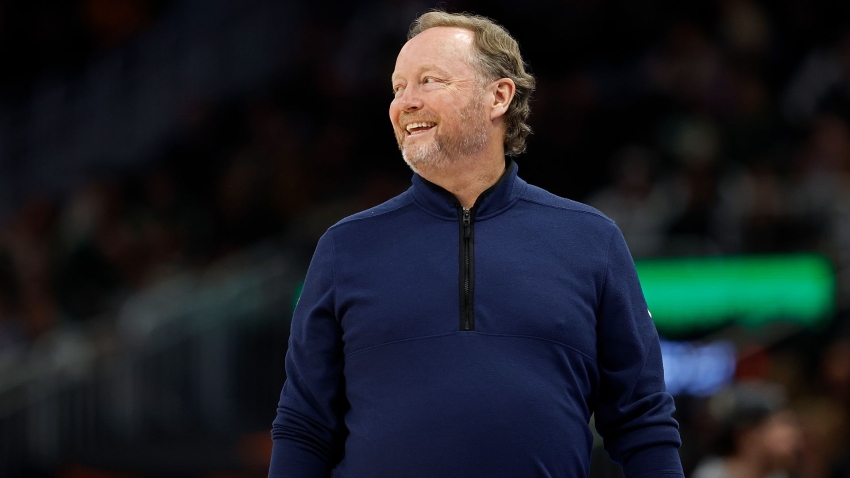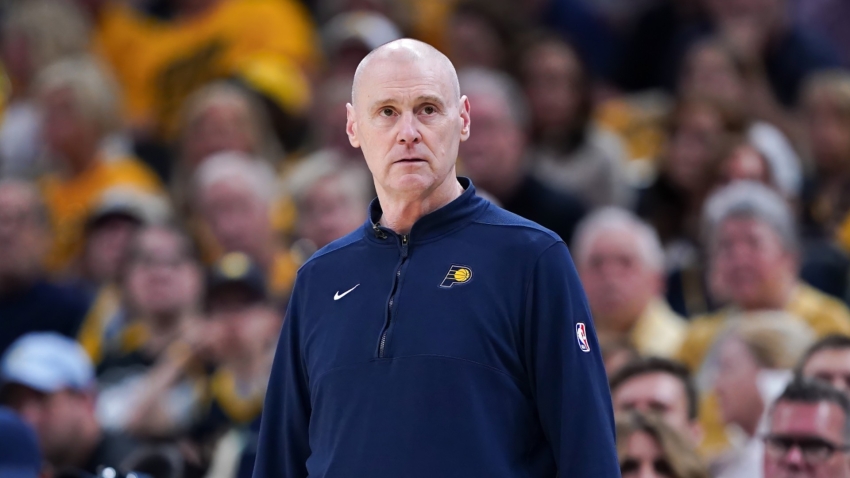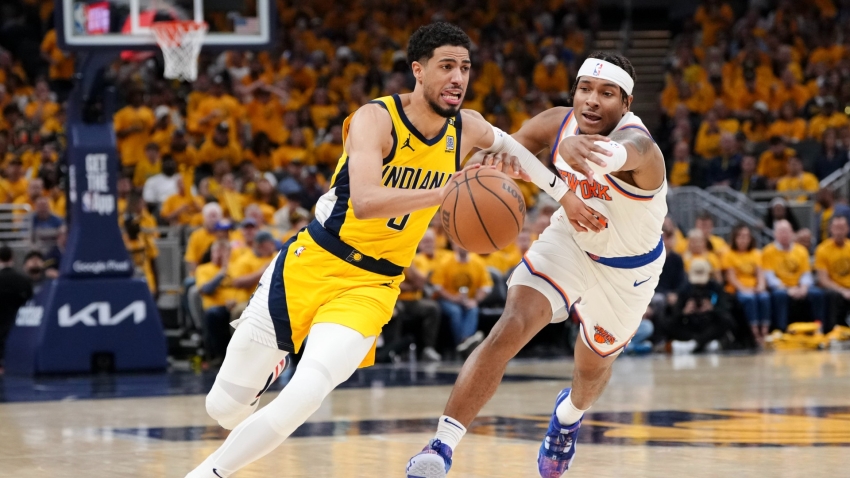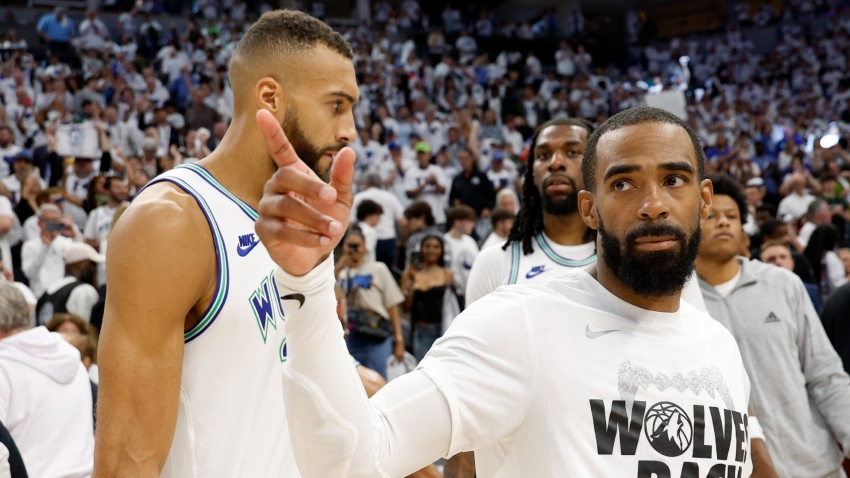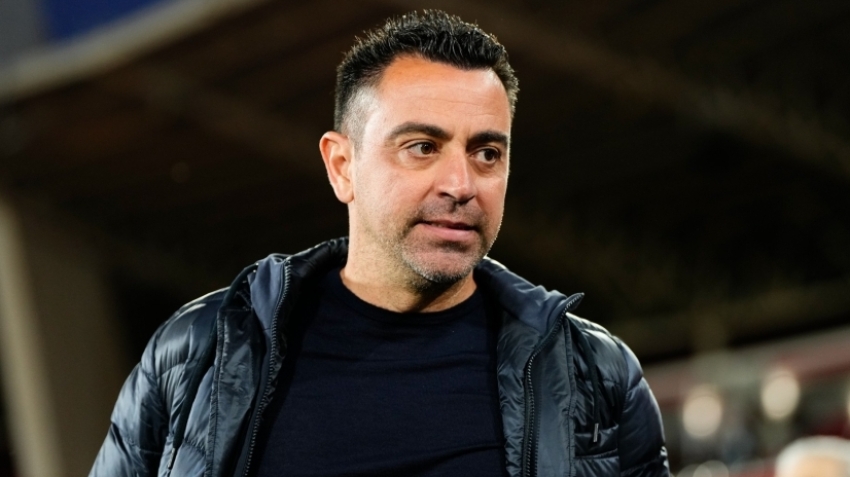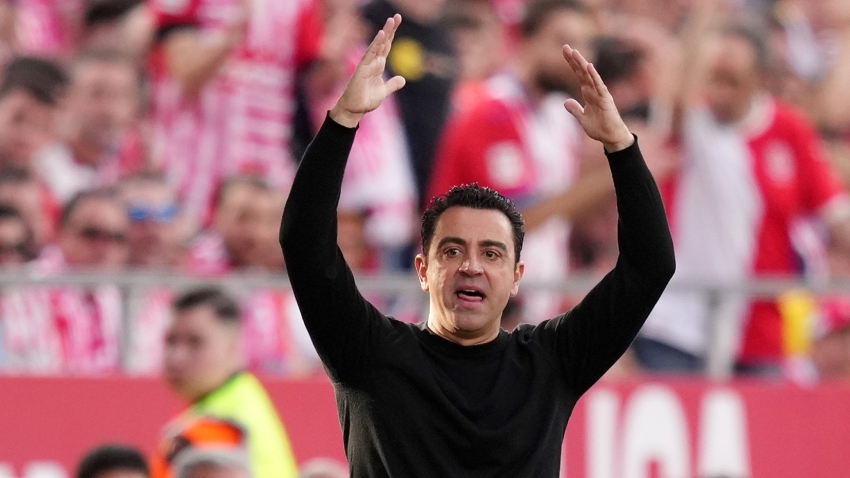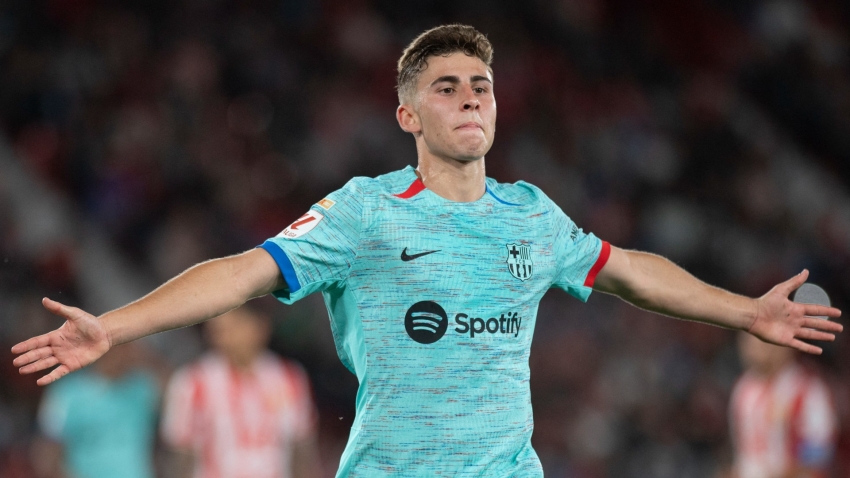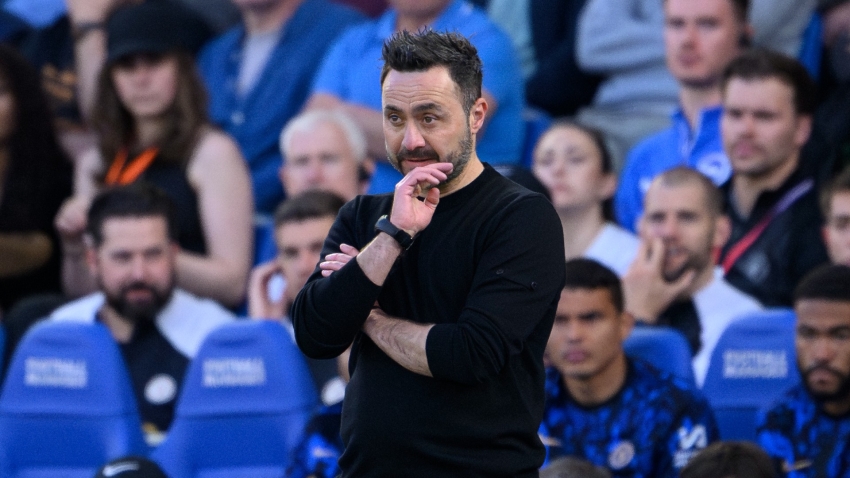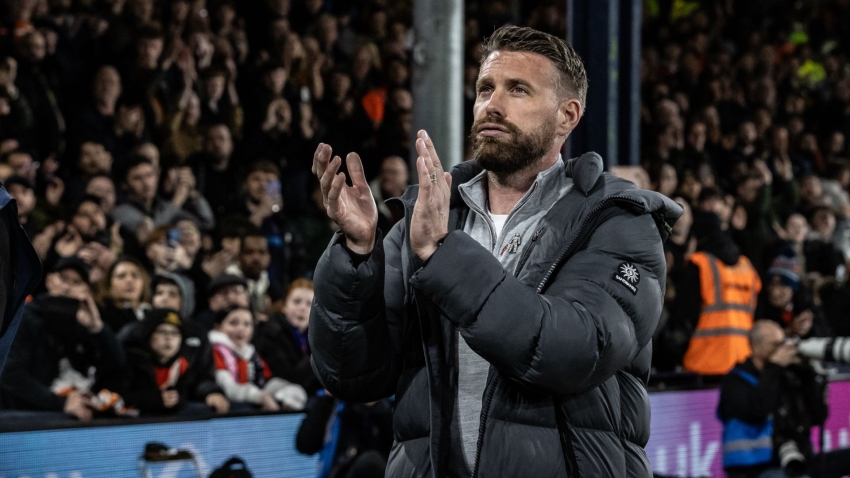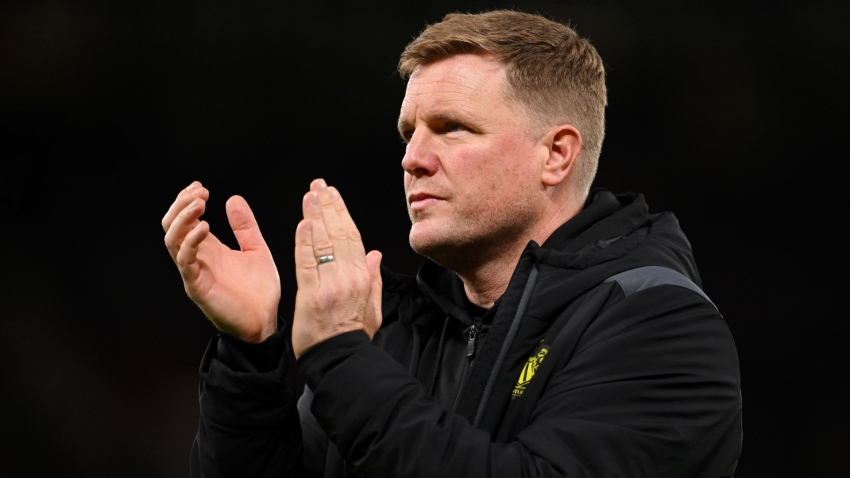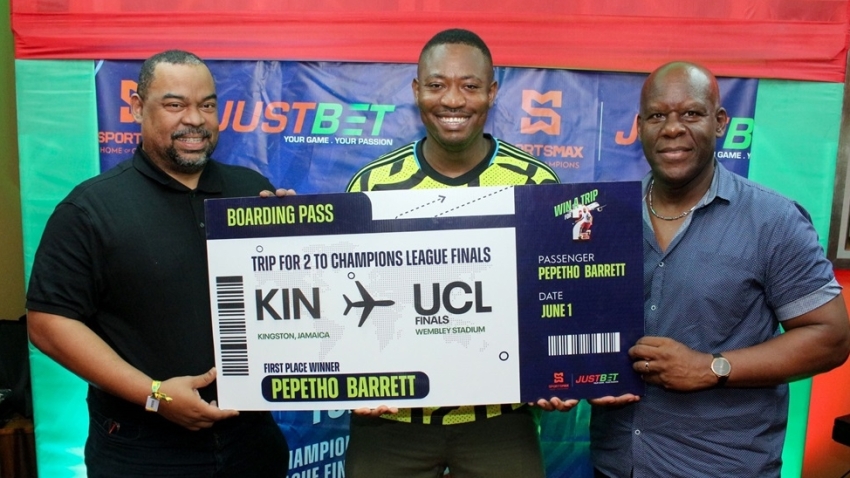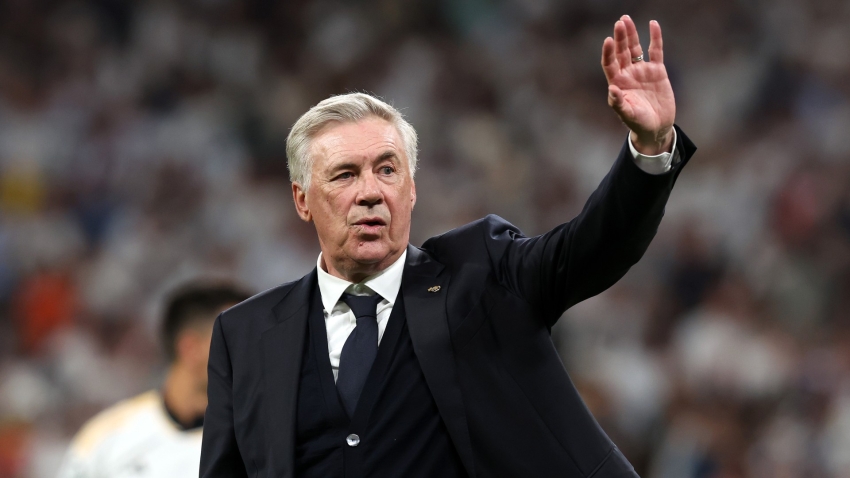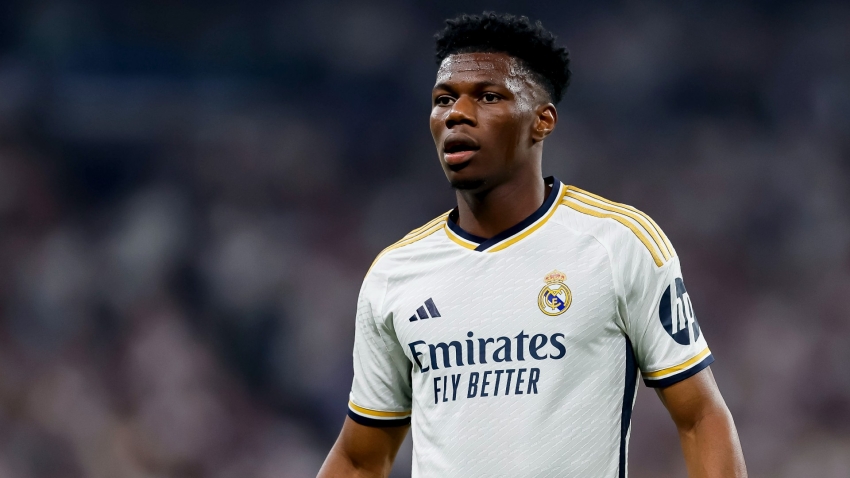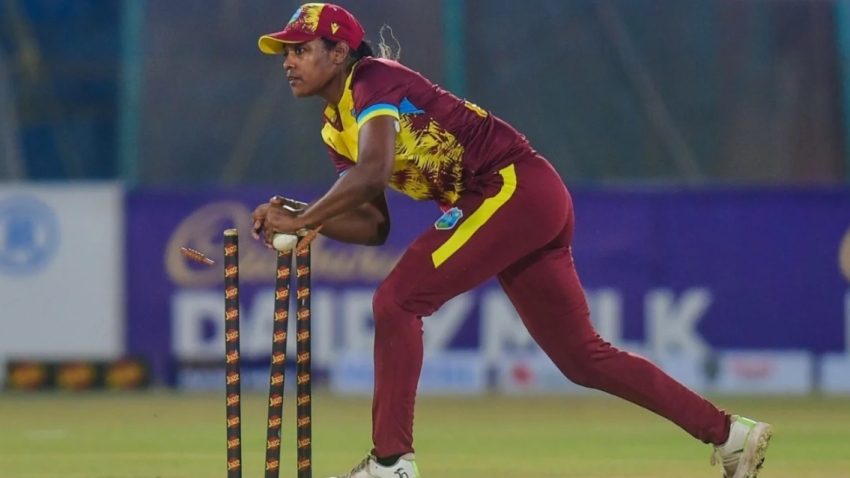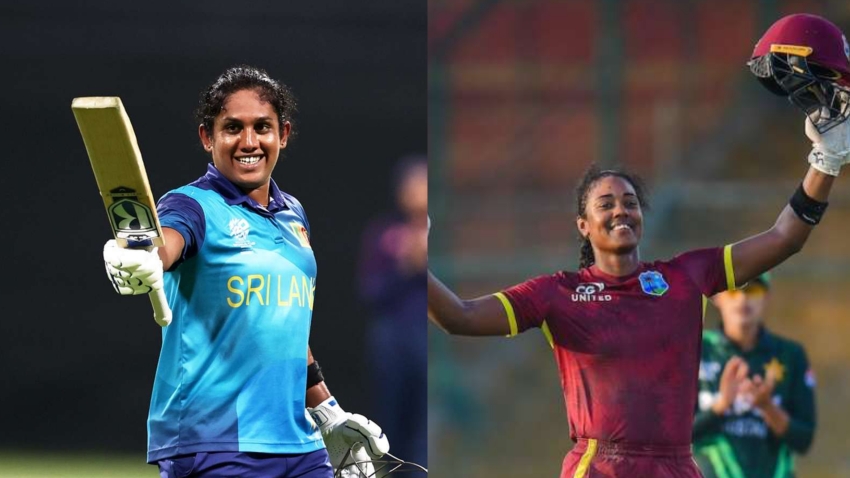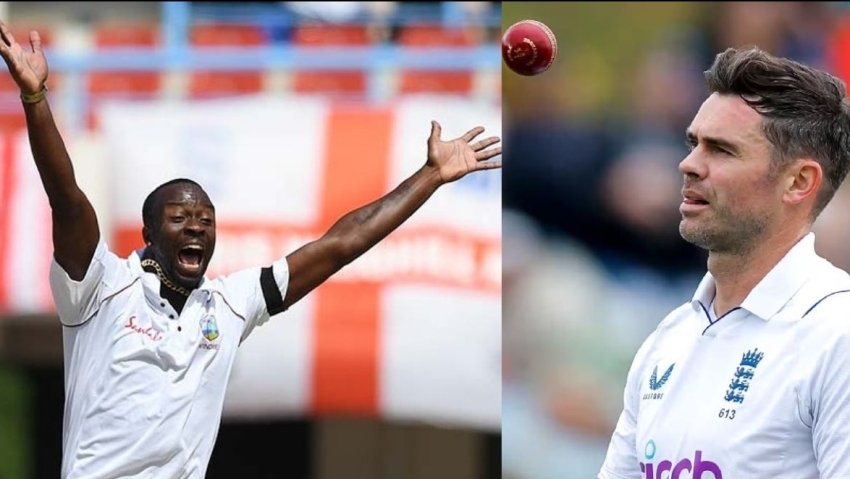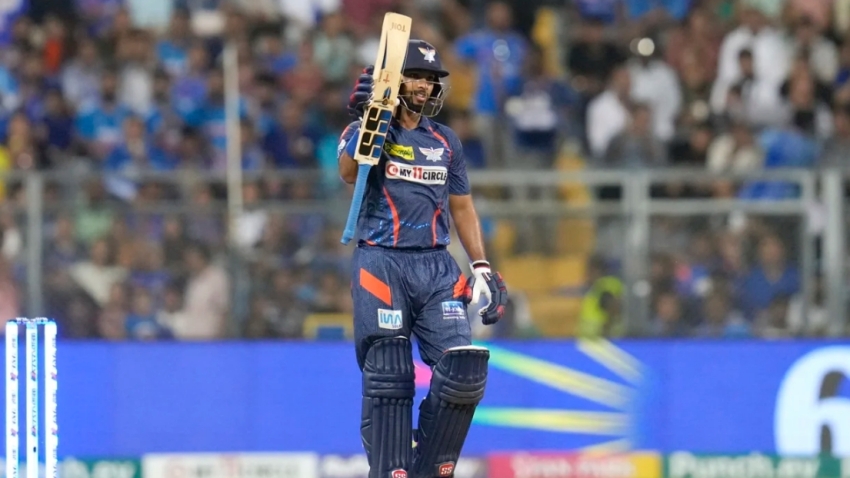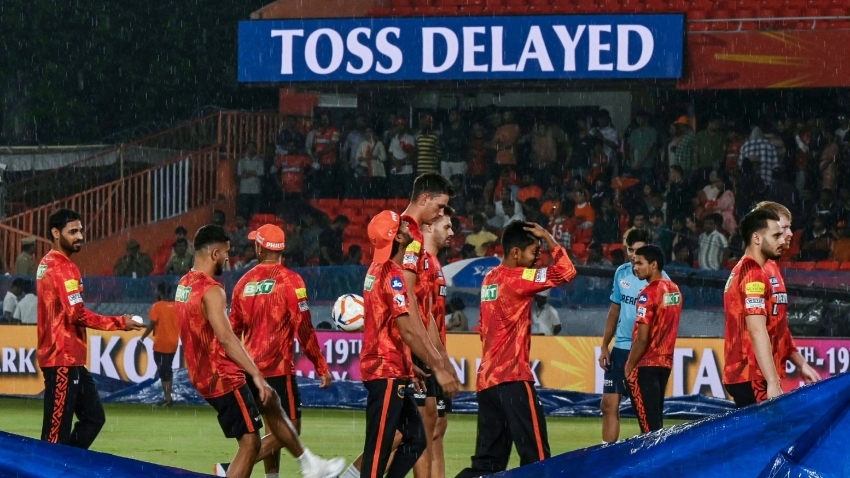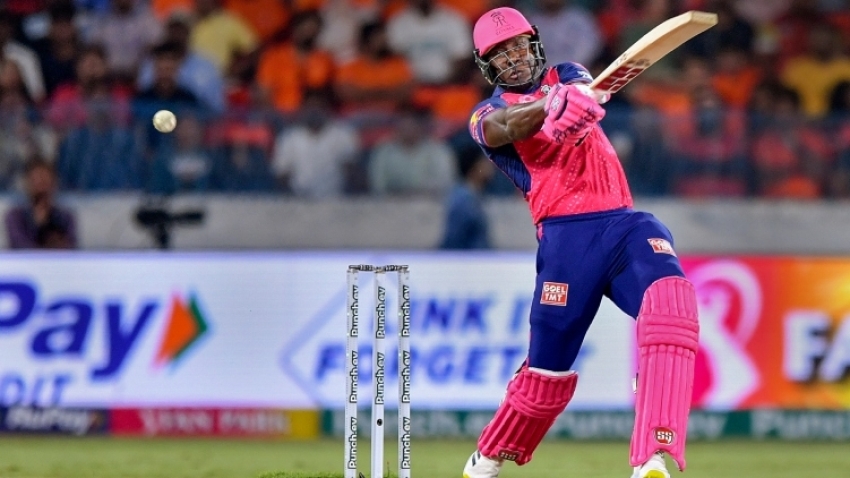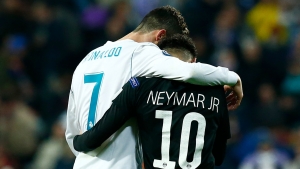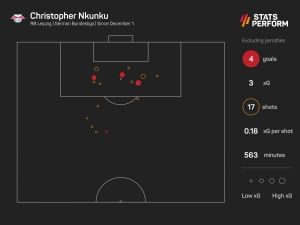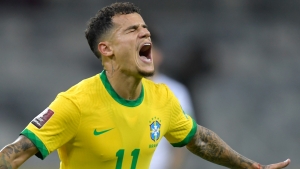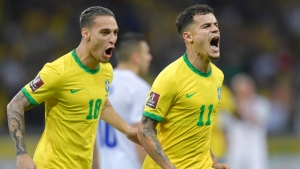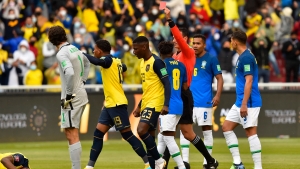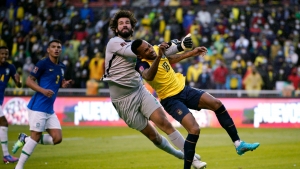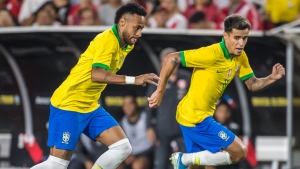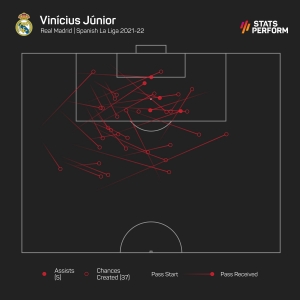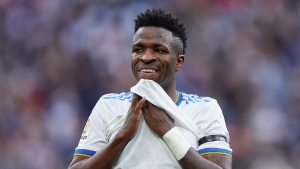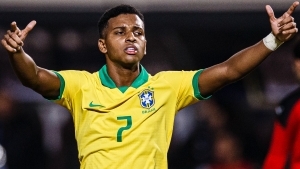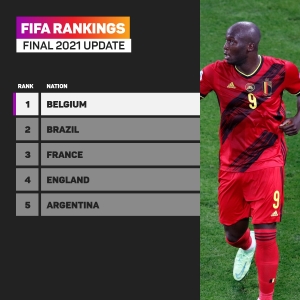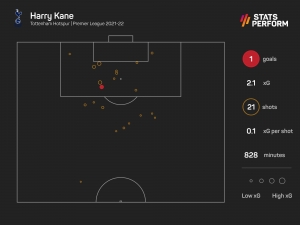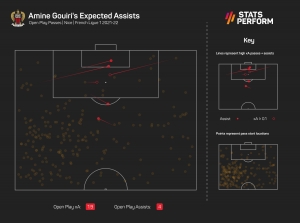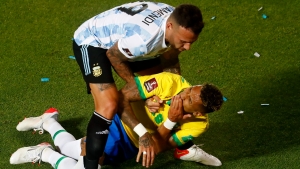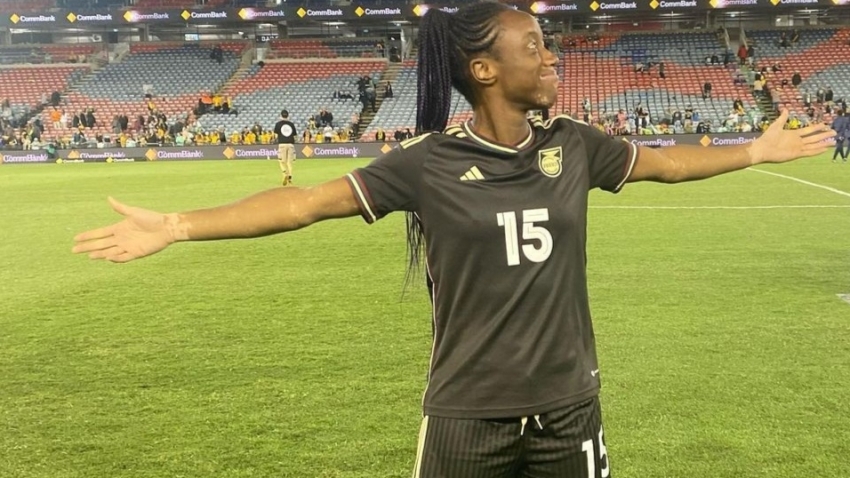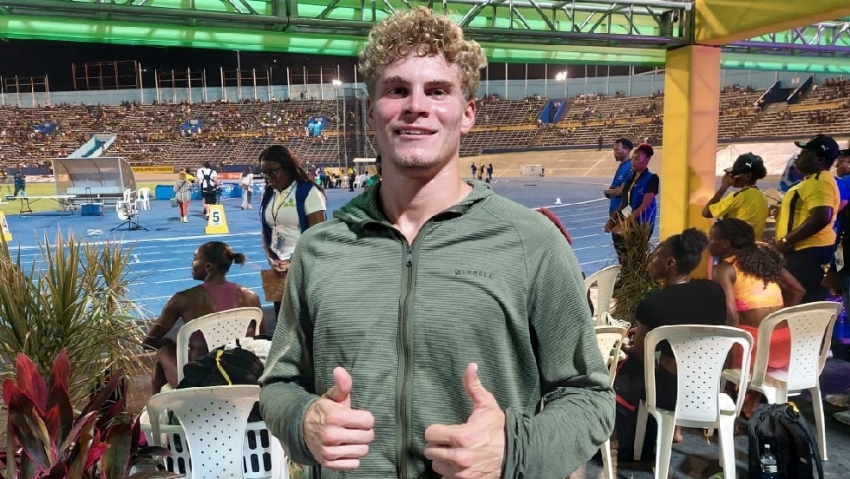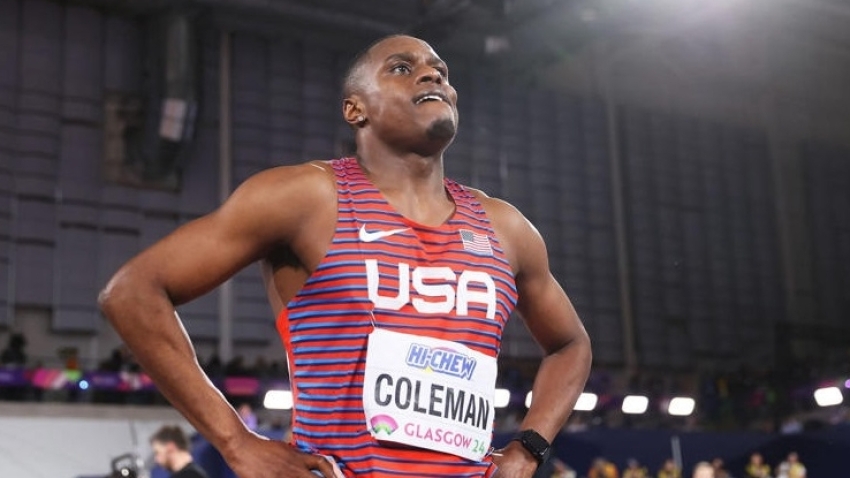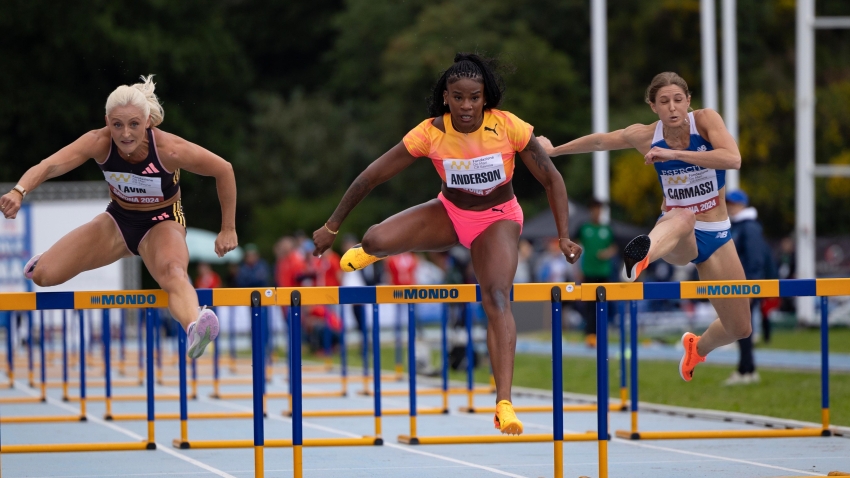Neymar at 30: Trophies galore, but no Ballon d'Or – how Brazil star compares with fellow birthday boy Ronaldo
February 05, 2022Perhaps there is something special to February 5. Or at least there is when it comes to world-class footballers.
On this day in 1985, Cristiano Ronaldo was born on the island of Madeira. Seven years later, Neymar came into the world in Mogi das Cruzes, in the Brazilian state of Sao Paulo.
Two of modern football's greats being born on the same day is quite the quirk, but while Ronaldo has gone on to cement himself as one of the best ever, it's hard to shake the feeling Neymar has never quite lived up to his extraordinary potential.
He emerged at Santos as Brazil's golden boy, a bona fide superstar in the making. By the time he left for Barcelona in 2013 at the age of 21, he was already been talked up as a shoo-in for a Ballon d'Or success.
Yet, as the forward hits 30, no Ballon d'Or has arrived. Indeed, he finished 16th in the voting for the 2021 award, and his move to Paris Saint-Germain has not seen him scale new individual heights.
Instead, he has been somewhat overshadowed by Kylian Mbappe, one of the new kids on the block, and it was his team-mate and close friend Lionel Messi who claimed a record-extending seventh Ballon d'Or last year.
Ronaldo, meanwhile, turns 37 back at the club where he became a global star.
Manchester United may not be the force they were under Alex Ferguson in Ronaldo's first stint, but his shock return to Old Trafford was a sensational story, and he continues to provide match-winning moments even if the comeback hasn't quite transformed the Red Devils into title contenders.
Using Opta data, Stats Perform looks back at what Neymar has achieved so far in his career, and how that stacks up against Ronaldo's feats by the time his twenties were over.
The trophies
Ronaldo was at Real Madrid when he turned 30 in 2015, a year after collecting his third Ballon d'Or, and a year prior to receiving his fourth. He went on to claim what was at the time a record-equalling fifth in 2017.
By the time he hit 30, Ronaldo had won four league titles (three Premier League wins, one in LaLiga), five domestic cup trophies and had enjoyed two Champions League triumphs. He had two Club World Cup successes to his name, and the UEFA Super Cup.
He played a pivotal role in Ferguson's dominant United team of the 2000s, combining with the likes of Wayne Rooney and Carlos Tevez in a thrilling attack to win three successive Premier League titles between 2007 and 2009, before his departure to Madrid in a then world-record transfer. His maiden Champions League success came in 2007-08, and he left United after losing to Barcelona in the 2009 final.
Indeed, Barca were the dominant force upon Ronaldo's arrival at the Santiago Bernabeu, and for much of the time before he turned 30.
In total, Ronaldo had won 16 major trophies by the time his twenties ended. Neymar, on the other hand, had already won six titles by the time he left Santos.
He added a further two league crowns to his name in Spain and won the Copa del Rey on three occasions, as well as the Champions League, Club World Cup and the Supercopa de Espana once each.
The Champions League has evaded Neymar so far at PSG, though he nevertheless has a trophy count of 10 and counting from his time in France, while unlike Ronaldo, he can count an Olympic gold – earned in Rio de Janeiro in 2016 – among his honours.
Neymar has won 28 titles, with 21 of those coming in Europe and one with the Selecao (Confederations Cup 2013). However, Neymar missed Brazil's triumphant 2019 Copa America campaign through injury.
The rivalries
Ronaldo was 28 when Barca signed Neymar for €86.2m. The days of the Guardiola-Jose Mourinho Clasico rivalry were over, though the clash was still littered with superstars on each side.
Prior to his 30th birthday, Ronaldo featured in 22 Clasico matches, starting 21 times. He scored 14 goals and provided one assist across 1,928 minutes of action.
Neymar played against Ronaldo's Madrid in four of these games, scoring twice, including on his Clasico debut when he opened the scoring and teed up Alexis Sanchez's sublime winner in a 2-1 Barca victory.
Barca won two of the four Clasico games in which Neymar played while Ronaldo was in his 20s, with Madrid taking the bragging rights in the other games.
Neymar's overall Clasico record stands at three goals and as many assists from eight appearances.
The goals
Neymar has scored 195 goals in European club football since arriving at Barca in 2013.
It is hardly a total to be scoffed at, yet it pales in comparison to the 411 Ronaldo had managed across his spells with Sporting CP, United and Madrid by his 30th birthday.
Indeed, by February 5, 2015, Ronaldo had already netted 36 goals in all competitions in 2014-15. He finished that campaign with an incredible 61 goals, the highest single-season total of his career.
That 61-goal haul came towards the tail-end of a run in which Ronaldo netted at least 50 times in six straight seasons. Neymar's best tally in a single campaign stands at 39 (2014-15), while his totals at PSG have dropped year-on-year, with his total for 2021-22 standing at three in all competitions, compared to Ronaldo's 14.
Ronaldo is also now of course the outright leading goalscorer in the history of international football, having overtaken Iran great Ali Daei.
The Portugal captain has netted 115 times for his country, with 52 of those coming in his twenties.
Interestingly, Neymar wins out by 18 goals in this regard, totalling 70 across 11 years of playing for Brazil.
He still has some way to go to catch Ronaldo, who is of course still going strong for Portugal, though that is one target that may well be in Neymar's sights should he match Ronaldo's longevity.
That being said, Neymar's injury record would suggest that, unlike Ronaldo and Messi, his chances of going down as one of the all-time greats appear slim heading into his thirties.
World Cup wannabes: Tracking the progress of 11 players hoping to be at Qatar 2022
February 02, 2022It's officially a World Cup year, that means footballers all over the globe will be hoping to get themselves into contention for their own shot at glory in Qatar.
Back in November, Stats Perform began their one-year countdown to the biggest show in football by identifying 11 uncapped players who could potential break into their respective national squads before Qatar 2022 got under way.
With February now upon us, we have revisited those players to see how they have been faring and whether a trip to World Cup looks any likelier…
Luis Maximiano (Portugal) – 23, goalkeeper, Granada
Having been one of LaLiga's form goalkeepers during the early stages of the season, Maximiano has been a little rocky lately. Since the start of December, he has conceded 10 times (excluding own goals) in the league despite those chances only being worth 7.9 xG – that puts him at least partly at fault for 2.1 goals, the sixth-worst over that period.
Jonathan Clauss (France) – 29, right-back, Lens
Clauss continues to show his worth in Ligue 1. Since December 1, his three assists have been bettered by only Dimitri Payet and Lovro Majer. Granted, the expected assists (xA) value of those was only 1.2, so there's an element of luck or benefiting from expert finishing, but he's still proving himself a good outlet both out wide and from set plays.
Bremer (Brazil) – 24, centre-back, Torino
Torino managed to keep Bremer in January before they extended his contract by a year to 2024 on Wednesday. Not only does that protect his value to the club, it was also a just reward for his reliable form. Since December 1, his tally of 21 interceptions is the second-highest among Serie A defenders, as is his 28 aerial wins.
Sven Botman (Netherlands) – 22, centre-back, Lille
Lille stood firm as Newcastle United tried to prise Botman away in January. Over the past two months, the Dutchman has continued to look an imperious presence at the back – his duel success rate (76.5 per cent) is the highest among defenders with at least 300 minutes on the pitch, while only two of those to have engaged in more than 11 aerials can better his success rate (79 per cent) in the air.
Angelino (Spain) – 25, left-back, RB Leipzig
Spain certainly aren't short of quality options in this area of the pitch, but Angelino is still a standout from an attacking sense. Since early December, his 3.0 xA is the best in the Bundesliga, while only five players have played more key passes than him (16).
Riqui Puig (Spain) – 22, midfielder, Barcelona
It's not looking good for Puig. It was thought Xavi's arrival might finally be the break he needed, but he has played only 158 minutes of LaLiga football in the past two months, and that was a period that saw Barca under real stress amid an injury and COVID-19 crisis. With players returning to action, including Pedri, few would be surprised to see his minutes reduce even further.
Christopher Nkunku (France) – 24, midfielder, RB Leipzig
Nkunku continues to look to be in with a great chance of forcing himself into France reckoning. Since we last checked on him, the versatile midfielder has scored four non-penalty Bundesliga goals, bettered by only four players (all out-and-out strikers), and laid on three assists. Only five players have tallied more goal involvements over the same period.
Alan Velasco (Argentina) – 19, winger, FC Dallas
Young talents leaving South American countries for MLS is becoming a recurring them – Velasco is the latest. The young winger became Dallas' record signing on February 1, reportedly costing $7million. He has not played much in recent months due to the Argentinian football calendar, so it will be intriguing to see if he kicks on when MLS starts again at the end of the month.
Cade Cowell (United States) – 18, forward, San Jose Earthquakes
The first success story on this list! Cowell was given his international bow in December as the USA beat Bosnia-Herzegovina 1-0. He did only feature for 12 minutes, and it was a partly experimental squad, but a cap is a cap.
Amine Gouiri (France) – 21, forward, Nice
Gouiri is another who continues to plug away to good effect. He slowed a little, and his return of five goal involvements (three assists, two goals) in the specified period is bettered by as many as eight players, though only Payet has as many as seven. The exciting forward is still doing well, though he could do with another minor boost.
Matias Arezo (Uruguay) – 19, forward, Granada
With the Uruguayan season finishing in early December, Arezo has not played much since his form was last examined – though he did get one more goal to take his seasonal tally to 15 in 29 games for River Plate (URU). That form earned him his shot in Europe, with Granada pulling off a potentially major coup in bringing him to Spain for about €3million. He awaits a first senior cap, though Uruguay are back in an automatic qualification spot.
Coutinho delighted with long-awaited Brazil goal
February 02, 2022Philippe Coutinho was delighted to have finally ended the long wait between goals for Brazil after netting in the 4-0 World Cup qualifying win over Paraguay in Belo Horizonte.
The 29-year-old playmaker, who joined Aston Villa on loan from Barcelona in January, netted a sublime long-range strike to make it 2-0 in the 62nd minute on Tuesday.
That goal marked Coutinho's first for his country since October 2020 when Brazil beat Bolivia 5-0 in their opening World Cup qualifier in this campaign.
It was also Coutinho's sixth goal from outside of the area for Brazil during Tite's tenure, with no player having scored more such goals in that time.
Coutinho, who has 65 caps to his name along with 19 goals, was back in the Brazil set-up for a second successive international break after missing much of 2021 with a knee injury, but had not featured for the Selecao since 2020 prior to starting against Ecuador last week.
"I was absent for a long time and I came out of a very complicated injury," Coutinho told reporters.
"I was called up for the previous two games for the Brazilian team but I hardly had a chance to play. I received a new opportunity now and I am happy to have delivered.
“I am very happy to have scored again for the Brazilian national team and to have scored again in this stadium with the Brazilian fans present."
Coutinho started and played 73 minutes in an offensive Brazilian formation, sitting behind a front three of Vinicius Junior, Matheus Cunha and Raphinha, with Neymar absent.
Lucas Paqueta and Coutinho offered plenty of attacking threat from midfield too but Brazil head coach Tite cooled excitement about the formation being a permanent fixture despite piling on four goals, with Raphinha and substitutes Antony and Rodrygo – the youngest player to score for the Selecao in this qualification campaign – also on target.
"I don’t believe much that the team is more offensive by having three strikers," Tite told reporters. "I see football as a balance.
"Those offensive players can only create if they have a creative midfield behind.
"A balanced team takes possession of the ball more times. I do not conceive of football where the pieces do not have harmony."
Brazil 4-0 Paraguay: Selecao cruise to victory as Coutinho nets first international goal since 2020
February 01, 2022Brazil turned on the style and piled on the goals as they continued their perfect home World Cup qualifying record with a comfortable 4-0 win over Paraguay in Belo Horizonte on Tuesday.
Leeds United forward Raphinha had a goal disallowed by the VAR early before netting the opener in the 28th minute, with new Aston Villa signing Coutinho adding a second on 62 minutes for his first international goal since 2020.
Brazil added two more in the dying minutes as Ajax forward Antony curled in the third, before Newcastle United addition Bruno Guimaraes laid off for Rodrygo to tap home.
The victory means Selecao, who have already clinched their spot at Qatar 2022, are unbeaten in 15 qualifiers and remain four points clear of rivals Argentina at the top of the CONCACAF standings.
Brazil have also won seven out of seven qualifiers on home soil, netting 18 goals and conceding only once, while Paraguay officially cannot qualify for Qatar 2022 due to the defeat.
Brazil head coach Tite has criticized the decision to appoint a Colombian referee for Thursday's chaotic 1-1 World Cup qualifying draw with Ecuador.
Colombian referee Wilmar Roldan handed out four red cards throughout the game, including two to Brazilian goalkeeper Alisson which were both rescinded by the VAR, along with two overturned penalty awards for Ecuador.
Trailing 1-0 to Casemiro's first-half strike, Ecuador had a 55th-minute penalty awarded by Roldan overturned when it was determined Pervis Estupinan had dived in the box as opposed to being fouled by Raphinha.
In stoppage-time, the hosts again thought they had a penalty which could have led to the winner after a foul from Alisson but the award was overturned by the VAR, offering the Liverpool goalkeeper and Brazil a late reprieve.
Tite was critical of Roldan's "impulsiveness" but also the decision to appoint a referee from Colombia, who came into this matchday fourth in CONMEBOL World Cup qualifying behind Ecuador.
“Today there was no point in appointing a referee from the fourth country in the table, when the third and first were playing," Tite said at the post-game news conference.
"Roldan is a good referee, but it gives for interpretations. The designation took a bit of sensitivity."
Tite added: "It was a difficult game. The number of fouls was exaggerated, 20 fouls by Ecuador and 12 by us.
"The circumstances happened, it wasn't evil, it was impulsive. Incorrect, yes. And it needs to be corrected, yes. It needs to be mature, yes. But it wasn't evil."
Ecuador 1-1 Brazil: Alisson's stoppage-time VAR reprieve spares Selecao in chaotic draw
January 27, 2022Alisson was given a stoppage-time VAR reprieve after conceding a penalty as Brazil somehow clung on to a 1-1 draw against Ecuador in a chaotic World Cup qualifying classic.
Felix Torres equalised with 15 minutes to go and Ecuador looked set to grab the win that would put them on the brink of qualification when awarded a last-gasp penalty, but that opportunity was taken away in an ending that befitted the remarkable 90 minutes that preceded it.
The first half saw the red card brandished three times – the first two, for Ecuador goalkeeper Alexander Dominguez and Brazil right-back Emerson Royal, were decisions that remained, but Alisson's was overturned.
All the controversy somewhat overshadowed Casemiro's early goal, which looked likely to be the winner given Ecuador had a goal wiped out and a penalty decision reversed soon after the restart, before Torres headed in.
Alisson was then sent off again, but for the second time his dismissal was overturned and Ecuador were denied their late spot-kick.
Tite: Coutinho can help Brazil replace injured Neymar
January 26, 2022Brazil head coach Tite is bullish that Philippe Coutinho can help replace the injured Neymar in his first appearance in national colours for more than 12 months.
Coutinho, who earlier this month joined Aston Villa on loan from Barcelona, is set to line up for Selecao in place of the suspended Lucas Paqueta in Thursday's World Cup qualifier away to Ecuador.
The 29-year-old has not played for Brazil since October 2020 having undergone knee surgery in January 2021.
Coutinho's return coincides with the absence of Neymar who is out for the upcoming qualifiers with an ankle injury.
"People always want Neymar, but at times things don't happen the way you want," Tite told reporters.
"We feel sorry that Neymar can't be here, but we have other options. I'm talking about Coutinho. He is a player that can play in that role and I believe in his quality.
"Coutinho is an important player and he's been recovering to his best level."
He added: "From a social and human standpoint, I know how much time he has invested and the challenges he has faced to recover from injury."
Ex-Liverpool forward Coutinho has started life at Villa brightly, netting the equalizing goal in the 2-2 draw with Manchester United on debut.
Brazil have already clinched their spot at Qatar 2022, but Tite wanted to push his players in the qualifiers against Ecuador and also Paraguay on Tuesday.
"I thought the emotions and feelings would be lighter but no, we have the same emotions and anxieties," Tite said.
"I want to test players in the upcoming qualifiers. I still have the same pressure."
Tite confirmed that he will field Real Madrid's Vinicius Junior against Ecuador along with Raphinha and Matheus Cunha.
Brazil duo Neymar and Vinicius Jr could thrive in the same starting XI, despite both forwards preferring to play in the same position, according to Juninho.
While Neymar is out injured, Vinicius has been called up for Brazil's World Cup qualifiers against Ecuador and Paraguay over the coming week.
Vinicius has only made nine appearances for Brazil and is yet to score for his country, only starting twice – against Chile in September and Argentina in November respectively.
Up until this season, the Real Madrid winger had struggled for consistency, but under the tutelage of Carlo Ancelotti, he has thrived for Los Blancos.
Only Karim Benzema (33) has more direct goal contributions for Madrid in all competitions than Vinicius, who has scored 15 times and provided eight assists.
Neymar, meanwhile, has had another stuttering season with Paris Saint-Germain, making just 14 appearances in all competitions and completing 90 minutes only nine times.
However, should he be fit, Neymar will no doubt be Brazil's main man heading to Qatar in November.
With Vinicius in such fine form, though, his place in Tite's squad also seems a certainty, and asked if the attackers - who both play predominantly from the left wing in a 4-3-3 formation - could feature together, Brazilian Football Confederation (CBF) director Juninho believes there is no reason why not.
"The two of them can play together," Juninho told Spanish radio show El Larguero.
"Vinicius shows his quality at Madrid and is beginning to show it for the national team now.
"He's improving every game. Now he's been playing very well for a while.
"Like [Philippe] Coutinho or [Lucas] Paqueta, they can also play together."
Juninho may be convinced Neymar and Vinicius fit into the same side, but neither would be suited to playing in a central role in Tite's preferred 4-3-3 system, while both are at their best when given the freedom to drift inside from the left, rather than the right.
Neymar is having a poor season in terms of end product. He has only scored three goals (and one of those was a penalty) and provided as many assists, while he has also underperformed his expected goals (xG) of 4.3, suggesting his finishing has been below par.
Vinicius, on the other hand, has outperformed his xG (12), averaging a goal every 169 minutes for Madrid.
The 21-year-old has also created 64 chances in comparison to Neymar's 28. However, when assessed per 90 minutes, the former Barcelona star crafts 2.1 opportunities, which is not far behind Vinicius' 2.3.
Neymar is also a more proficient dribbler, completing 3.6 dribbles per 90 minutes in comparison to Vinicius' 3.4, while he also creates 0.5 big chances per 90, as opposed to the Madrid man's 1.6.
Brazilian Football Confederation (CBF) director Juninho has confirmed Brazil will not release Real Madrid players before the end of the international break.
South American teams are in World Cup qualifying action over the coming week, with FIFA having inserted an extra international window into this season's calendar to make up for time lost due to the COVID-19 pandemic.
Brazil have already qualified for this year's World Cup in Qatar and sit top of the CONMEBOL standings on 35 points.
They face Ecuador on Thursday and Paraguay on February 1.
Madrid, meanwhile, have a Copa del Rey quarter-final against Athletic on February 3.
Four Madrid players – Casemiro, Eder Militao, Rodrygo and Vinicius Junior – have been called up for Brazil.
However, Juninho insisted that even if the players do not feature in each of Brazil's games, they will remain with the national team until February 2 when the international window ends, meaning there is little chance of Los Blancos having the quartet available for the trip to San Mames.
"We are not going to release the players," Juninho told Spanish radio show El Larguero.
"The players have to be with us until the end of the FIFA period, on February 2. Depending on how they play the first match [we will] discuss whether or not they play the second.
"They will be with us until the end. We are not willing to release them. We cannot set a precedent. We have had requests from other clubs.
"We have a few days with the players. We must take advantage of this year now that the preparation for the World Cup has begun."
Juninho stressed Brazil have turned down Madrid's requests on the grounds of fairness to other teams.
"We can't, it's not that we don't want to," he added.
"In Tite's management it has never happened. That is not the situation, we understand the situation of the clubs. It has happened because of the pandemic. Before, there was no January date. It is the situation that was forced on us.
"We have a very good relationship with the clubs. We always talk cordially. [Brazil coach] Tite has explained the situation to Ancelotti.
"It was in a good tone. They understood our situation and I think they haven't had any problems."
Asked if Tite had discussed the issue with the players in question, Juninho said: "I guess Tite has talked to them and made the situation very clear.
"The October [2022] dates were cancelled and we only have a week to prepare for the World Cup [in November]. There is only one week for Tite to be with the players and see how they are. The clubs understand that.
"I also spoke with [Paris Saint-Germain director] Leonardo and the English clubs on other occasions with the same problems."
Rodrygo has his sights set on World Cup glory with Brazil later this year following his call-up to the squad.
The Real Madrid winger has been selected by Tite for his nation's qualifiers against Ecuador and Paraguay this week.
The Selecao, who sit top of the CONMEBOL qualifying table, are already guaranteed a place in Qatar having collected 35 points from their opening 13 matches.
Rodrygo has three senior caps to his name and knows the upcoming games present an opportunity for him to stake his claim to appear at the finals, and helping Brazil claim a sixth World Cup triumph – and first since 2002 – tops his priority list for this calendar year.
"It is very important for me to be [back in the] Brazil [squad]," he said in quotes reported on Marca via TNT Brazil.
"It was a goal to return to [the] Brazil [squad]. I think these games can define things, and I hope to play and settle in the national team.
"All Brazilians want to be in Qatar. I'm going to work to try to be there. If I play well, I have a chance [to go].
"[If I had to choose a title to win in 2022, I'd say] the World Cup."
Rodrygo has made 17 appearances for Madrid in LaLiga this season, with 11 of those coming as a substitute – the same as Luka Jovic – with none of his team-mates appearing from the bench more often.
He has had more joy in the Champions League however, scoring in victories over Inter and Shakhtar Donetsk.
The 21-year-old has attempted 16 dribbles in Europe's premier competition this term, with Vinicius Junior (36) the only Los Blancos player to top that.
Rodrygo will hope to be involved again as Carlo Ancelotti's side face Paris Saint-Germain in the round of 16, and he is excited by the prospect of lining up against one of his compatriots.
"This game could have come a bit later [in the competition]," he added.
"They have some of the best players in the world. We know it's difficult, but it's a collective effort that will give us the chance to go through.
"Playing against Neymar will be special. I hope Real Madrid win."
Belgium end fourth successive year atop FIFA rankings
December 23, 2021Belgium will sit at the top of FIFA's world rankings for a fourth successive year at the end of a record-breaking 12 months for international football.
Having seen just 352 full internationals take place in 2020 due to the coronavirus pandemic, the fewest since 1987 (323), things were cranked up several notches this year as World Cup qualification attracted focus.
A total of 1,116 FIFA internationals were played across 2021, a new record, with teams making up for the loss of action a year earlier.
While the frequency of games changed significantly, one constant remains: Belgium lead the way once again, edging out Brazil by 2.1 points, while UEFA Nations League winners France finish the year third.
European champions Italy go into 2022 in sixth having claimed 115.77 points more than in 2020, while Copa America winners Argentina are one place better off, improving on their 2020 points total by 108.51 points.
But the biggest improvement of the year has been recorded by Canada, whose ranking of 40th is the joint-highest they have ever been.
The Canucks reached the semi-finals of the Gold Cup and are well on course to reach only their second World Cup finals – and a first since Mexico 1986 – as they sit top of the CONCACAF qualifying group with six games to go.
Their 1,462.32 points is 132.32 more than last year, the biggest 12-month improvement of all FIFA nations.
Meanwhile, World Cup hosts Qatar head into their big year just inside the top 50 at 48.
Pele back in hospital but 'stable'
December 08, 2021Brazil legend Pele has been admitted to hospital to undergo treatment for a colon tumour, but is in a stable condition.
The three-time World Cup winner required an operation to remove a colon tumour in September and has since continued undergoing chemotherapy as part of the rehabilitation process.
Sao Paulo's Hospital Albert Einstein confirmed on Wednesday that Pele had been hospitalised again, adding he is in stable condition and should be discharged in the next few days.
"The patient is stable, and the forecast is that he will be released in the coming days," the statement said.
The legendary striker has suffered from ill health in recent years, having prostate surgery in 2015 after being admitted to hospital twice in six months, and he was hospitalised again for a urinary infection in 2019.
Pele is the only player to hold three World Cup winner's medals, lifting the trophy in 1958, 1962 and 1970.
The 81-year-old is also one of just four players to score in four different World Cups, while he remains Brazil's all-time leading goalscorer - having found the back of the net 77 times in 92 appearances for the Selecao.
World Cup 2022 countdown: Messi magic, killer Kane and rejuvenated Germany – Qatar contenders assessed
November 20, 2021The 2022 World Cup is now just 12 months away, with qualifying entering its closing stages following a series of crunch November clashes.
Difficulties still await Italy and Portugal – the past two European champions – in the play-offs, but most of the other big names are well on their way if they have not already confirmed their place in Qatar.
So, how are the expected contenders shaping up? Stats Perform investigates.
Argentina
Having finally ended his long wait for a senior international honour at this year's Copa America, Qatar looks like Lionel Messi's last realistic chance to guide Argentina to World Cup glory. They last triumphed in 1986, in the days of Diego Maradona.
But the brilliant Barcelona form that has been the bedrock of Messi's outstanding career is no more. Since clinching the Copa, the forward has left Camp Nou for Paris Saint-Germain and played just 595 minutes across eight games at club level, scoring three goals and assisting none. Heading into this weekend, he had yet to net in Ligue 1.
At odds with the rest of his career, Messi has briefly become one of those players who performs better for country than for club, scoring four goals in seven games for Argentina in the same period, even allowing for the minutes spent regaining fitness in November. But the national team must be concerned Messi's unconvincing displays and shaky recent fitness record hint at a decline that could continue for another year before he gets an opportunity to lead a global title charge.
Although Argentina undoubtedly have other highly talented players – Messi was one of four to make the Team of the Tournament as they become South American champions – it is tough to imagine a successful Albiceleste side without the great number 10 at the heart of it.
Belgium
Roberto Martinez's Belgium remain the world's top-ranked team, but it feels like their window for a first major title might now have passed.
Martinez took charge after Euro 2016, where a stacked squad lost to Wales in the last eight, yet he has found a glass ceiling, finishing third at the 2018 World Cup and fourth at the 2020-21 Nations League either side of another quarter-final exit at Euro 2020. Since a disappointing performance at the Nations League Finals, Martinez has been linked to a host of club roles – albeit he is expected to stay put until Qatar.
Although Belgium's 'Golden Generation' have maintained their position at the top of the game despite an ageing defence, there are worrying signs their key attacking players could also be on the wane.
Through a combination of injuries and poor form, Eden Hazard has not looked the same player since he left Chelsea for Real Madrid. Kevin De Bruyne, also beset by fitness issues and below-par outings of late, will hope not to follow the same path. Both he and Romelu Lukaku must still be at their peak to give the Red Devils a chance.
Brazil
Brazil were outclassed by Belgium in the quarter-finals in Russia but have lost just three matches since then. One of those was in this year's Copa final against Argentina, although the Selecao also won the competition in 2019.
Unlike previous Brazil teams, Tite's side are built on the strength of their defensive record. They have kept 28 clean sheets since the 2018 World Cup, conceding just 16 times in 42 games, with 11 shutouts in 2021 alone.
However, that solidity comes at a price. Brazil are scoring at a relatively unspectacular rate of 2.0 goals per game, including netting only two in their three Copa knockout games in July and just one across two November qualifiers.
Neymar will have a key role in producing those timely moments of magic and should not be short of motivation heading to Qatar, having suggested this will be his last World Cup. The forward has excelled on the world stage before without taking Brazil all the way.
England
As so often, England have qualified with relative ease, benefiting from a kind draw, but will not face a true test until the tournament comes around.
That means a wait to see if Gareth Southgate can make the necessary tweaks to turn the Three Lions from nearly men into champions, with the midfield a key area of focus having ceded 65.4 per cent of the possession to Italy in the Euro 2020 final, 53.2 per cent to the Netherlands in the 2018-19 Nations League semi-finals and 55.5 per cent to Croatia in the 2018 World Cup semis. The continued development of Declan Rice and Jude Bellingham should encourage optimism.
But England also find themselves in a position, like Argentina, where the performances of their talismanic captain are suddenly a concern – at least at club level.
Harry Kane has so far this season used the international breaks as sweet relief, quickly closing on Wayne Rooney's record goals tally by scoring in 15 consecutive qualifiers up to September and notching seven in November alone, but there is a break now before March's fixtures and the forward simply must rediscover some sort of form for Tottenham and add to his single Premier League goal in order to return to the England fold in good nick.
France
Welcoming Karim Benzema back into a frightening front line, France appear to have an even more impressive line-up than at the previous World Cup, where they emerged as champions.
Benzema has already directly combined for five goals with Kylian Mbappe and one with Antoine Griezmann, who has in turn linked up once with Mbappe. The trio netted nine of France's 10 goals this month, while Mbappe had assists for each of Benzema's strikes at the Nations League Finals as both players scored in both matches and Les Bleus twice came from behind to take the title.
Yet those prior deficits and the six goals conceded at the Euros hinted at the weaknesses in this France side, as Didier Deschamps is still working on his new 3-4-1-2 formation.
The composition of the midfield in that team is crucial, and N'Golo Kante was missing against Belgium and Spain before Paul Pogba suffered an injury prior to the November fixtures. France have no shortage of quality but may not head to Qatar as the most settled unit.
Germany
It was clear Joachim Low's Germany tenure was reaching its natural conclusion before he announced his departure plans in March. That the team followed up a group-stage exit at the World Cup by stumbling through their pool at the Euros before exiting to England only further illustrated that this was the right decision.
But Germany know all about recovering quickly from such setbacks; they seemed to reach rock bottom at Euro 2000 and were in the World Cup final two years later.
Now Hansi Flick, having set Bayern Munich back on course, is excelling again with the national team, becoming the first Germany coach to win his first six matches in charge – a sequence that now stands at seven and counting. The team's last longer winning run ended at 12 games in 1980.
Germany were the most aggressive pressing side in Europe during qualifying, this despite naming their oldest XI in more than 21 years in a recent qualifier against Liechtenstein. Striking this same balance between energy and experience will be key in Qatar.
Spain
Spain have come a long way since the last World Cup, where they appeared to be in crisis from start to finish, eventually exiting to hosts Russia on penalties.
Luis Enrique's subsequent work across two spells has made them contenders again, reaching the last four at the Euros – only to again fall foul of a shoot-out – and briefly leading France in the Nations League final. The emergence of Ansu Fati, Pedri and Gavi over the course of these campaigns provides a major cause for long-term optimism, too.
However, injury issues have kept that trio from ever featuring together for their country; in fact, Fati, Pedri and Gavi are yet to play a single minute together for Barcelona.
They were three of 39 players to appear for Spain in qualifying, showing the depth of talent at Luis Enrique's disposal. Within that group, however, there is not a prolific goalscorer – a major concern with 12 months to go.
And so, the countdown begins…
The 2022 World Cup is just over a year away, with Qatar set to begin the tournament against a still-to-be-decided opponent on November 21, 2022.
Even writing it feels strange. A World Cup… starting in November. But that is the reality, with Qatar's controversial – to put it kindly – hosting of the competition effectively rendering a tournament in June/July impossible due to the conditions.
With only a year to go, 13 of the competing nations (including Qatar) have confirmed their qualification, including record five-time winners Brazil and defending champions France.
Of course, most countries will have a fairly settled group of players, but a year is a long time in football, and a few newcomers will make the breakthrough.
As such, Stats Perform has identified 11 uncapped players who could break into their respective national teams by this time in 2022, and those players' progress will be tracked over the next 12 months in follow-up features.
Without any further ado, here are the chosen players...
Luis Maximiano (Portugal) – 22, goalkeeper, Granada
Yes, yes, Maximiano's inclusion here already implies a massive assumption that Portugal will even make it to Qatar, given their 2-1 home defeat by Serbia left them needing to go through the play-offs.
Nevertheless, it's reasonable to expect them to make it, and if they do, Maximiano may fancy himself as being in with a shot, particularly after a strong start to 2021-22.
He replaced compatriot Rui Silva – who left for Real Betis – between the posts at Granada after falling out of favour at Sporting CP, and he's showing his quality.
According to Opta's xGOT (expected goals on target) conceded data, Maximiano has already prevented 3.7 goals in LaLiga this season, the second-most in the division.
Of course, such metrics are weighted in favour of goalkeepers in teams are that kept defensively busy, and Granada are 17th in LaLiga, but we can create a fairer comparison by standardising for the number of shots each keeper faced by looking at their 'goals prevented rate'.
Maximiano's goals prevented rate of 1.37 means he was expected to concede 1.37 goals for every goal actually conceded, and again this is the second best in the league this season.
His shot-stopping abilities have reportedly caught the attention of Barcelona, and given Portugal's lack of a standout goalkeeper (and that's including first-choice Rui Patricio), Maximiano certainly isn't out of the running for Qatar 2022.
Jonathan Clauss (France) – 29, right-back, Lens
Football loves a late bloomer; maybe it's because they convince some of us we can still make it as a professional player. Lens star Clauss is a fascinating embodiment of the phenomenon.
Now 29, Clauss did not make his top-flight debut until the start of 2020-21, but it's fair to say he's been a revelation in a Lens side who have truly captured the imagination since they were promoted back to Ligue 1 in 2019-20 – 13 games into the current campaign, they're second to PSG.
A year out from Qatar 2022, Clauss is being mentioned in France media conferences, with Didier Deschamps last week asked why he wasn't called up. Of course, the coach's decision to go with options he knows when qualification wasn't assured is fair enough, but the Lens man is seemingly now in contention.
He has already had a hand in eight Ligue 1 goals this season, with six assists the joint-most in the division. His positivity on the flank as a wing-back is proving a massive asset to Lens, for whom he also set up six goals last term.
Of course, his greater comfort as a wing-back rather than an orthodox full-back may in the long run count against him, but Clauss is demonstrably effective going forward – usual France right-back options Benjamin Pavard and Leo Dubois aren't, and that may be his 'in'.
Bremer (Brazil) – 24, centre-back, Torino
Playing in a generally poor team can go one of two ways for a centre-back: you're either considered a big part of the problem, or you thrive because you're given more opportunities to show your strengths.
For Bremer in a Torino team that have finished 16th and 17th in the past two seasons, it's definitely been the latter.
The 24-year-old has reportedly attracted the interest of numerous Premier League clubs, with Liverpool seemingly the team that are most keen.
While he's not a particularly great progressor of the ball, his 4.9 passes into the final third per 90 minutes since the start of last season being almost half the figures of the highest-ranking Serie A defenders, Bremer is a reliable centre-back first and foremost.
His four clearances per game is up there with the best (only one player averages more than 4.7), while Bremer's positional sense is highlighted by 2.6 interceptions every 90 minutes, a figure bettered by only five defenders (min. 1,000 minutes played since 2020-21 started).
Similarly, the centre-back wins 3.2 aerial duels per 90 minutes, which again is the sixth-highest among that group of defenders.
Brazil don't have outstanding depth at centre-back, all the more reason why Bremer is in with a shot – a move to Liverpool or another 'giant' would only help his cause.
Sven Botman (Netherlands) – 21, centre-back, Lille
Ball-playing centre-backs grow on trees in the Netherlands, or so you'd think. Botman is another off the very reliable production line, having come through the esteemed ranks at Ajax.
Lille signed him for roughly €9million in July 2020 after he enjoyed a promising loan spell with Heerenveen, and he went on to play in all but one Ligue 1 match as Les Dogues won the title.
Life's been a little tougher for Lille this term following the loss of coach Christophe Galtier to Nice, but Botman remains a key player and retains a fine reputation from 2020-21.
Since the start of last season, his 1,295 forward passes is the second most in the division and he ranks 11th for the most ball carries (635).
He's a progressive centre-back who offers plenty of forward-thinking but is also reliable when it comes to getting stuck in.
Over the same period, he's come out on top in 67.8 per cent of his duels, which is the second-best success rate among players to have engaged in at least 150.
Granted, the Netherlands' centre-back options are deep, but Botman's been in the squad before and there's little doubt he would be a good fit for them stylistically.
Angelino (Spain) – 24, left-back, RB Leipzig
It may surprise a few people to learn Angelino has never played for Spain. In fact, he's never even received a call-up to the senior side.
Let's not forget, Spain are blessed with a lot of quality in left-back and wing-back roles. Currently, Jordi Alba, Marcos Alonso, Jose Gaya and Sergio Reguilon are the favoured options, but Angelino is arguably in better form than any of them.
All five players are probably at their best as wing-backs rather than full-backs, and Luis Enrique's current system does allow for such players, which is another reason for Angelino's suitability. Then it comes down to effectiveness on the pitch.
Since the start of last season, in league competition Angelino tops a host of attacking metrics among the aforementioned players. He creates 2.2 chances per 90 minutes on average, with Alonso and Alba next on 1.6.
While Angelino's 0.16 assists every 90 minutes is lower than Alba's 0.22, the Leipzig man is seemingly being let down by poor finishing as his expected assists each game is 0.31 – again, this is the highest.
On a per-90-minute basis, Angelino creates the most chances from open play (1.6), plays the most crosses (5.5) and passes into the box (9.9) most frequently among this group.
Of course, this is partly explained by him playing slightly further forward than his counterparts, but Spain spend most of the time on the ball anyway – having someone as effective as Angelino in attack must be a consideration for Luis Enrique.
Riqui Puig (Spain) – 22, midfielder, Barcelona
It feels like Puig has been around for a long time, because even before he was around the first-team squad, Barca fans were singing his praises.
He had been considered as potentially their next legendary midfielder, such was his blend of technical excellence and fine passing skills, two staples of Barca's La Masia academy.
But it's not quite worked out that way.
In the past three seasons, he's only played more than 300 minutes over the course of a LaLiga campaign once, under Quique Setien in 2019-20. While he did feature in 14 league games for Ronald Koeman last term, that amounted to 283 minutes at an average of 20.2 mins in each appearance, and that did not improve this term prior to the Dutchman's sacking.
So, why is he even on this list?
Well, as much as anything because his progress will be intriguing to watch once again now that Xavi is at the helm. If there's anyone who can appreciate Puig's qualities, it'll surely be him.
Christopher Nkunku (France) – 24, midfielder, RB Leipzig
While Nkunku has generally been considered a versatile central midfielder for much of his career, he's excelled in a slightly different role since Jesse Marsch's introduction as Leipzig coach.
He's operated more from the flanks and is getting into the opposition's penalty area with greater frequency, his touches in the box up from 5.2 per 90 minutes to 7.7 this season.
As such, he's getting more shots away in the area (2.2 every 90 minutes, up from 1.7) and that's unsurprisingly led to an increased xG average of 0.45 each game.
He's already got 11 goals across all competitions, four more than he managed in 2020-21, suggesting the change in role is paying dividends, though he remains an able option in the middle such is his quality on the ball and ability to break forward.
In each of the past two seasons, Nkunku didn't manage to start more than 21 league games, but he's already on 11 this term. He's maturing and seemingly found his niche – now all he needs is that elusive first call-up.
Alan Velasco (Argentina) – 19, winger, Independiente
Lionel Scaloni has restored a significant amount of respect for Argentina's national team, guiding them to Copa America success earlier this year – that was their first international title at senior level in 28 years.
During his three years in charge, Scaloni has used 75 different players in matches, which shows both the wealth of options he has but also how willing he is to give individuals a chance.
In attack is arguably where Argentina's depth is greatest, but Independiente talent Velasco is surely one of the likeliest to earn a first cap over the next 12 months.
A positive and direct left-winger who likes to cut inside onto his right foot, Velasco has been enjoying something of a breakthrough season in Argentina's Primera Division, particularly during the second stage.
He has five goal involvements (one goal, four assists) since mid-July, with no one in the division managing to set up more than five in the entire year, and he has unsurprisingly become a bit of a target for opponents, as highlighted by his 2.9 fouls suffered every 90 minutes being the third-most among players with at least five appearances.
But that doesn't deter him. His 41 chances created is the third highest in the division, and the most among under-21 players, while his 91 dribbles completed and 4.8 per 90 minutes are both league highs.
Velasco also works hard off the ball, making 47 recoveries in the opposition's half, which is fifth among all players. The teenager is a big talent who also boasts strong work ethic – Scaloni will surely have him earmarked as one to watch.
Cade Cowell (United States) – 18, forward, San Jose Earthquakes
There aren't many countries in the world producing more exciting young talent than the United States at the moment, with their squads for the next few World Cups shaping up to be very promising.
While 2022 will probably come too soon for Cowell – arguably the wildcard of this list – he certainly shouldn't be written off, given he has already spent time training with the senior squad before.
A dynamic, quick and strong attacker who play out wide as well, Cowell is the third-youngest player in MLS history to reach 50 appearances, having reached that landmark at 18 years and 16 days old. Only Freddy Adu (16y, 2m, 25d) and Alphonso Davies (17y, 7m) got there quicker.
This season, despite only starting for 14 of his 33 MLS appearances, Cowell has amassed 11 goal involvements (five goals, six assists), which only Jesus Ferreira (17 – 8g, 9a) and Ricardo Pepi (16 – 13g, 3a) can better among under-21 players.
There's no mistaking Cowell is very much a rough diamond. He doesn't create a huge amount of chances (1.3 per 90 mins), his duels (32.2 per cent) and dribble (47.6 per cent) success rates aren't great, but he's young and raw. Improvements here should come naturally, and a big 2022 might just propel him into a national side that's not afraid to give youngsters a chance.
Amine Gouiri (France) – 21, forward, Nice
If there's one team in international football that would be the toughest to break into as a forward, it's probably France, but Gouiri looks special.
It now looks utterly astonishing that Nice managed to get him for as little as an initial €7million from Lyon in 2020, and the versatile forward – who is comfortable on the left or through the middle – is enjoying the kind of consistency not always associated with young players.
The 2020-21 season was his first as a regular starter in top-flight football and he went on to score a highly respectable 12 goals. While that failed to match his 14.6 expected goals (xG), perhaps showing a degree of inexperience, he did also lay on seven assists.
Once again, Gouiri's goals haul of six is a little behind his xG (8.1), suggesting a hint of wastefulness, but only three players are providing greater service than him, with his 3.3 expected assists (xA) ranking high.
Technically, Gouiri is exceptional and explosive, and this undoubtedly helps him create openings and space in the final third, with his combined average of 0.97 expected goals and assists every 90 minutes this season the second-highest in Ligue 1.
Gouiri is too good to never play for France – it's only a matter of time until he gets the call-up, and if he carries on his current trajectory for the next 12 months, Qatar will beckon.
Matias Arezo (Uruguay) – 18, forward, River Plate (URU)
Uruguay has produced some truly great strikers down the years. After more of a barren spell in that regard since Edinson Cavani and Luis Suarez came through, there is once again a cause for optimism with Darwin Nunez, Agustin Alvarez and, arguably chief among them, Arezo.
The teenager turns 19 this November, so he's still got lots to learn and much room for growth, but the early signs are hugely promising – his stocky appearance, powerful style of play and feistiness (13 yellow cards over 2020 and 2021) have earned him the nickname 'Buffalo', and he's already a reliable source of goals despite his youth.
Arezo scored 13 times in 35 Uruguayan Primera appearances last term – he's matched that haul from 26 outings this year. For comparison's sake, Suarez got 10 in 27 in his first full season in the division with Nacional, while Cavani recorded nine in 25 appearances for Danubio before moving to Europe.
Qatar 2022 will almost certainly be the last World Cup for Suarez and Cavani if Uruguay make it, so they are likely to be involved – but otherwise, La Celeste's forward options are up in the air.
Arezo has been coping well in the physical competitiveness of South America's domestic football and must be in with a great shout of forcing his way into contention for the mission to Qatar.
Tite fumes at 'inconceivable' VAR non-decision on Otamendi elbow
November 17, 2021Brazil head coach Tite blasted the video assistant referee (VAR) and labelled it "inconceivable" that Nicolas Otamendi was not sent off for an elbow in Tuesday's 0-0 2022 World Cup qualifier draw with Argentina.
Raphinha was floored and left bloodied after the 34th-minute incident where Otamendi flailed his arm into the Brazilian midfielder's face.
Otamendi lifted Raphinha to his feet with no sanction from referee Andres Cunha, nor any VAR intervention in the aftermath leaving Tite flabbergasted.
"It's impossible not to see the elbow. Was it decisive in the result? I do not know," Tite said during the post-game news conference.
"Was it a great match for both teams? It was. Great game between them. Tradition, technical quality. Now, there's a component that has to be equal, for those who have the discernment to see.
"But a high-level VAR referee cannot work like this. It is inconceivable, and that is not the term I want to use, but I use it because I am educated."
The result in San Juan leaves already-qualified Brazil six points clear of second-placed Argentina in the CONMEBOL World Cup qualifying standings.
Argentina officially earned their spot in Qatar one hour after full-time when Chile were beaten 2-0 at home by Ecuador.
Brazil return to action away to Ecuador in late January when CONMEBOL World Cup qualifying resumes.

